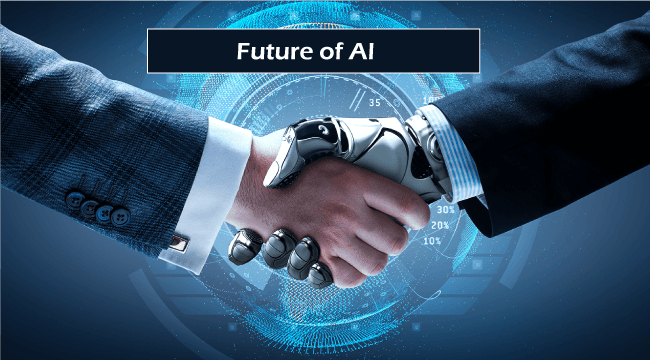
The Future of Artificial Intelligence: Trends and Predictions for the Next Decade
1. AI Integration in Everyday Life
Ubiquitous AI
AI will become seamlessly integrated into everyday objects and activities, making our lives more convenient and efficient. From smart homes to wearable technology, AI will anticipate our needs, automate routine tasks, and enhance our interactions with the digital world.
Enhanced Personal Assistants
Voice-activated personal assistants like Siri, Alexa, and Google Assistant will become more sophisticated, offering personalized and context-aware support. These AI-driven assistants will handle more complex tasks, such as managing schedules, making purchases, and providing real-time information.
2. Advancements in Natural Language Processing (NLP)
Conversational AI
NLP will continue to advance, enabling more natural and human-like interactions between machines and people. AI-driven chatbots and virtual assistants will become more adept at understanding context, emotions, and nuances in language, providing more effective and intuitive communication.
Multilingual Capabilities
AI will break down language barriers with improved translation and interpretation capabilities. Real-time translation tools will facilitate seamless communication between people speaking different languages, fostering global collaboration and understanding.
3. AI in Healthcare
Personalized Medicine
AI will revolutionize healthcare by enabling personalized treatment plans based on an individual's genetic makeup, lifestyle, and medical history. Machine learning algorithms will analyze vast amounts of data to identify the most effective treatments for each patient.
Early Diagnosis and Predictive Analytics
AI will enhance early diagnosis and predictive analytics, allowing healthcare providers to identify potential health issues before they become severe. By analyzing patterns in patient data, AI can predict the likelihood of diseases and recommend preventive measures.
4. Autonomous Systems
Self-Driving Vehicles
The development of autonomous vehicles will accelerate, with AI-driven cars becoming more common on roads. These vehicles will improve road safety, reduce traffic congestion, and offer new transportation solutions, such as autonomous delivery services and ride-sharing.
Drones and Robotics
AI-powered drones and robots will play a significant role in various industries, including agriculture, logistics, and construction. These autonomous systems will perform tasks such as monitoring crops, inspecting infrastructure, and delivering goods with increased efficiency and precision.
5. AI in Education
Personalized Learning
AI will transform education by offering personalized learning experiences tailored to each student's needs and abilities. Adaptive learning platforms will adjust the difficulty level and content based on real-time performance, ensuring optimal learning outcomes.
Intelligent Tutoring Systems
AI-driven intelligent tutoring systems will provide students with additional support outside the classroom. These systems will offer interactive, real-time assistance and personalized feedback, helping students master complex subjects and skills.
6. Ethical and Responsible AI
Addressing Bias and Fairness
As AI systems become more pervasive, ensuring their ethical use will be paramount. Efforts to address bias and fairness in AI algorithms will intensify, with researchers and policymakers working to develop standards and guidelines that promote transparency and accountability.
Data Privacy and Security
With the increasing reliance on AI, protecting data privacy and security will be crucial. Advances in encryption, anonymization, and secure data-sharing techniques will help safeguard sensitive information and maintain user trust.
7. AI and the Future of Work
Automation and Job Transformation
AI will continue to automate routine and repetitive tasks, transforming the job landscape. While some jobs may be displaced, new opportunities will emerge, requiring workers to adapt and acquire new skills. Emphasis on continuous learning and reskilling will be essential for staying relevant in the AI-driven job market.
Human-AI Collaboration
The future of work will see increased collaboration between humans and AI. AI systems will augment human capabilities, assisting with decision-making, problem-solving, and creativity. This symbiotic relationship will lead to greater productivity and innovation across industries.
8. AI in Creative Industries
AI-Generated Content
AI will make significant strides in creative fields such as art, music, and literature. AI-generated content will become more sophisticated, producing original works that rival those created by humans. Collaboration between artists and AI will result in innovative and unique creations.
Personalized Entertainment
AI will enhance entertainment experiences by offering personalized recommendations and content. Streaming services, video games, and social media platforms will leverage AI to curate experiences tailored to individual preferences and behaviors.
Conclusion
The future of AI holds immense promise, with advancements poised to impact every aspect of our lives. From personalized healthcare and education to autonomous systems and ethical AI, the next decade will witness remarkable transformations driven by AI technologies. Embracing these trends and preparing for the challenges and opportunities they present will be crucial for harnessing the full potential of AI and shaping a better future for all.